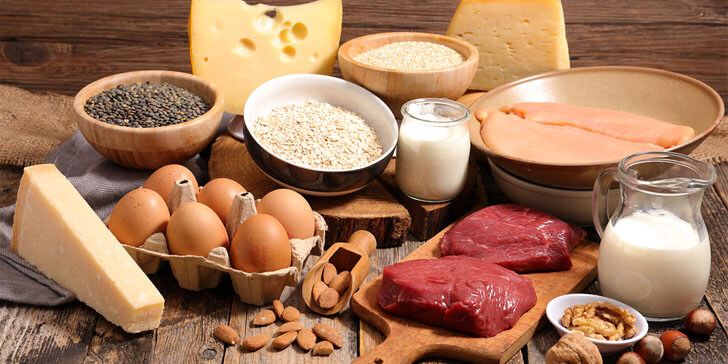I read an interesting article in the Guardian (link below) and thought I’d give my thoughts on it. Some things I agreed on but also thought some points need clearing up…
Nowadays everyone recognises the importance of protein to grow and repair damaged tissues (bone and muscle) after exercise, but it also supports immune function and the generation of new cells for overall health and development.
Companies have jumped on this and there is now a ‘high in protein’ product for almost every packaged food you look at when shopping.
Protein bread, protein chocolate bars, protein cereals, even protein water is available to buy… but does this make it a healthier option? Of course not.
So a few things to clear up:
1. How much protein do you need?
2. Are high protein diets harmful?
3. Should you be buying these protein-boosted products?
1. How much protein do you need?
It depends.
Activity level, age, body weight, body composition, health issues, dieting/training goals (i.e. lose weight or increase muscle mass)…
These highlight the many factors that influence your diet and the types of foods you should eat, but with regards to protein, my general advice would be to include 3-4 portions of high quality protein food every day. This could be a chicken breast, steak, fish, yoghurt, cheese, milk, eggs.
If you’re a vegetarian or vegan, focusing on plant foods and soya-based alternatives are absolutely fine. Tofu, soya dairy products, Quorn, lentils, beans, chickpeas, large quantities of vegetables.
Everybody can meet their protein (and other nutrients) needs through food alone as part of a well-structured diet. This includes vegan diets…just a lot of people don’t do it properly.
Protein is also more satiating (you feel fuller quicker) and requires more energy to be digested than carbohydrates and fats, making high protein diets a useful strategy when attempting to lose weight. Remember this needs to be as part of a negative calorie balance to actually lose weight!!
Athletes do need more protein than the average person to help their bodies recover after vigorous training. If you’re an athlete or are physically active, you can either increase your portion sizes, or better yet, increase your servings to 5-6, spread evenly throughout the day approx. every 3-4 hours. Timing is more important for athletes to promote recovery and training adaptations.
2. Are high protein diets harmful?
No…Unless you have underlying liver or kidney problems.
Research has failed to show any harmful effects of long-term high protein diets in healthy individuals.
However more is not always better.
Bodybuilders will eat very high protein diets with no deleterious effects. Some will go as high as 3-3.5g per kg body mass, which goes against the recommended upper limit of 2.5g/kg stated in this article.
It doesn’t mean they are benefiting from consuming this much protein. Research suggests an upper limit of 2.7g/kg in such populations, but beyond this there is no greater benefit.
There is actually MORE HARM in eating LOW PROTEIN diets. This is crucial in ageing populations as the body loses muscle and bone mass at a much higher rate. This is why staying fit and active is so important even later in life, to maintain your quality of life! Eating more protein slows down this natural decline in tissue wasting.
3. Should you be buying these protein-boosted products?
Just because something is marketed as high in protein doesn’t make it a healthy option. These foods are still heavily processed and have very little nutritional value. They can also be fairly high in calories and sugar depending on the product, so shop carefully.
A few things to consider to help you choose:
– They are not cheap, can you afford them?
– Do you need to increase your daily protein intake and is there an easy way of achieving this?
– Are you on the go a lot (athlete, busy job) and they are a convenient protein source for you?
– Do you enjoy these products?
If you answer yes to any of these, then having them every now and then will do you no harm…so long as they compliment the rest of your diet and do not replace nutrient rich meals.
There is next to no nutritional value in these products beyond having a bit of extra protein in them.
Prioritise real food that is minimally processed at any given opportunity and enjoy these products to supplement a well balanced diet.
The article I’m reviewing can be found here:
https://www.theguardian.com/news/2019/jan/04/protein-mania-the-rich-worl…
Do you need help with your nutrition? Get in touch to arrange a consultation and find the best solution for you.






